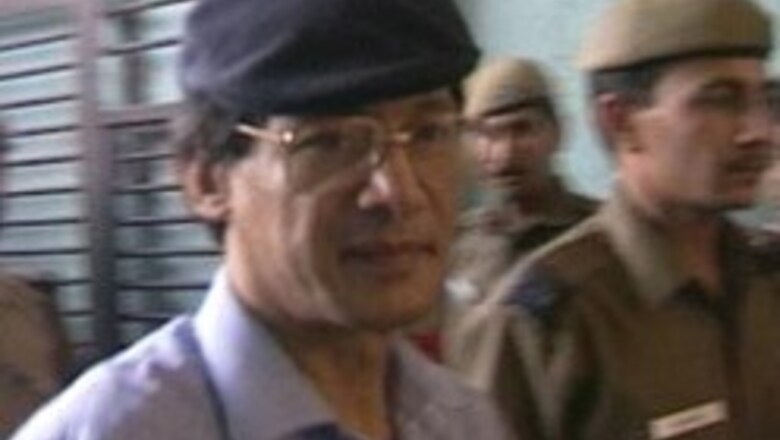
views
Kathmandu: The imminent Maoist victory in Nepal's historic constituent assembly election has given new hope to someone who has no role in play in the politics of the Himalayan nation - the "Bikini Killer" of yesteryear, Charles Gurmukh Sobhraj.
The 64-year-old, currently serving a 20-year jail term in Nepal for the murder of an American tourist almost four decades ago, has been devouring the newspapers to discover the outcome of last week's election, which is expected to usher in peace and stability in the civil strife-torn country.
Sobhraj, who is fighting his last appeal in Nepal's Supreme Court against the life term slapped on him four years ago, longs for stability in the country as unrest in the past frequently delayed his trial.
In 2006, the hearings were put off due to the outbreak of protests against King Gyanendra's direct rule, which prompted the royal government to impose day-time curfew and issue shoot-on-sight orders.
This month, the new government declared a five-day national holiday to ensure a peaceful election and enable voters to return to their constituencies and cast their ballot.
The Supreme Court also remained closed for five days, adding to the jailed man's impatience.
As the counting of votes started Friday and the indications were that the former guerrillas, once banned as terrorists, were poised for a landslide victory, Sobhraj has seen a ray of hope for himself.
PAGE_BREAK
With the Maoists remaining absorbed in their underground revolt for 10 years and now focussing on demolishing Nepal's unpopular King Gyanendra, they have little time to think about Sobhraj.
Also, most of the party members are young people who have no memory of Sobhraj's crime exploits in the 1970s.
"It's a good thing," the anxious Sobhraj told IANS.
The man, who inspired several books and documentaries after a series of robberies, forgeries and drug related offences targeting western tourists in various Asian countries in the 1970s, says he did not kill American Connie Jo Bronzich and was unfairly sentenced in Nepal on the basis of his earlier reputation.
A Maoist-led government holds out the hope of a fair trial to him since the former guerrillas are also trying to put their past behind them, which includes the death of over 13,000 people.
Sobhraj says he put his criminal past behind him in the 1990s when he was released from India's Tihar jail and deported to France, where he became a law-abiding citizen working with a film company.
He also says he came to Nepal for the first time in 2003 to explore the possibility of making documentaries and export handicraft items but was framed by Nepal police for Bronzich's killing.
Three years ago, when King Gyanendra stirred up his kingdom by trying to set himself up as the omnipotent head of government and wage a war on the Maoists, Sobhraj sought a pardon from the king who enjoyed the power to reprieve prisoners on special occasions.
However, though a friend of his, who was also serving a life term in the same prison for murder had his sentence remitted and was freed, Sobhraj was not shown any such clemency.


















Comments
0 comment